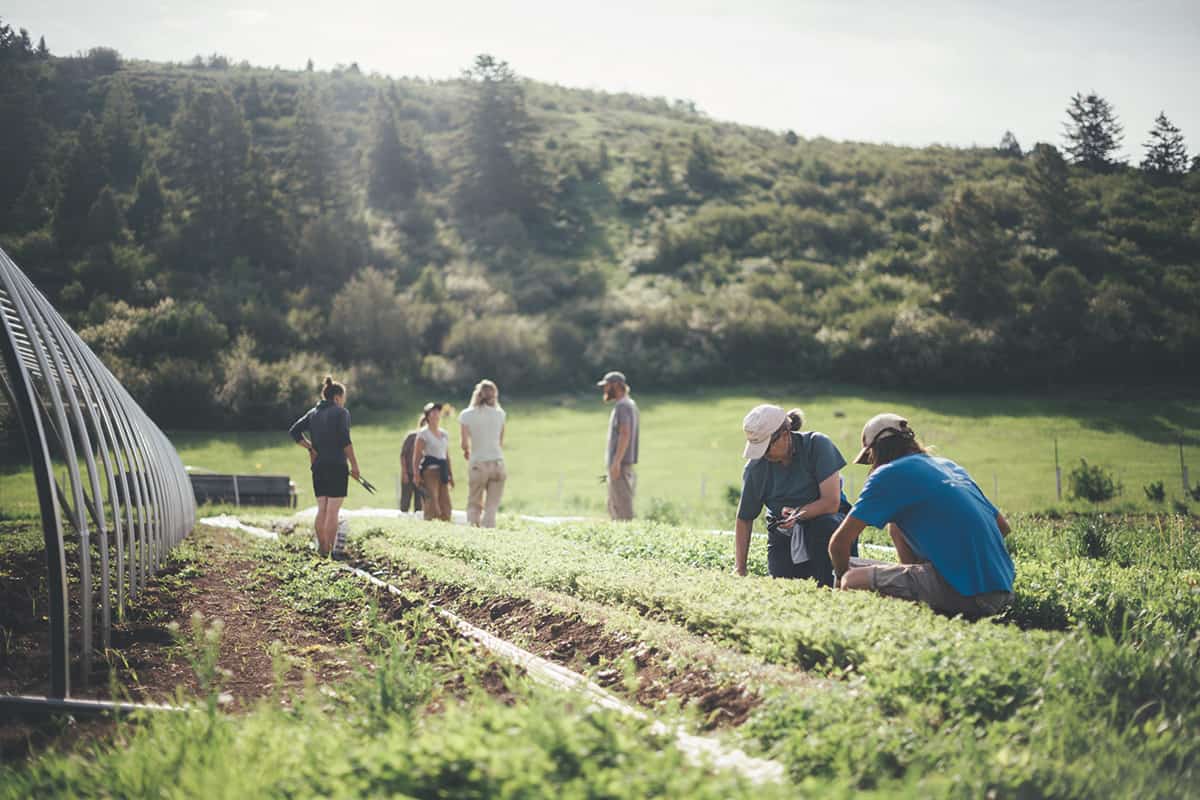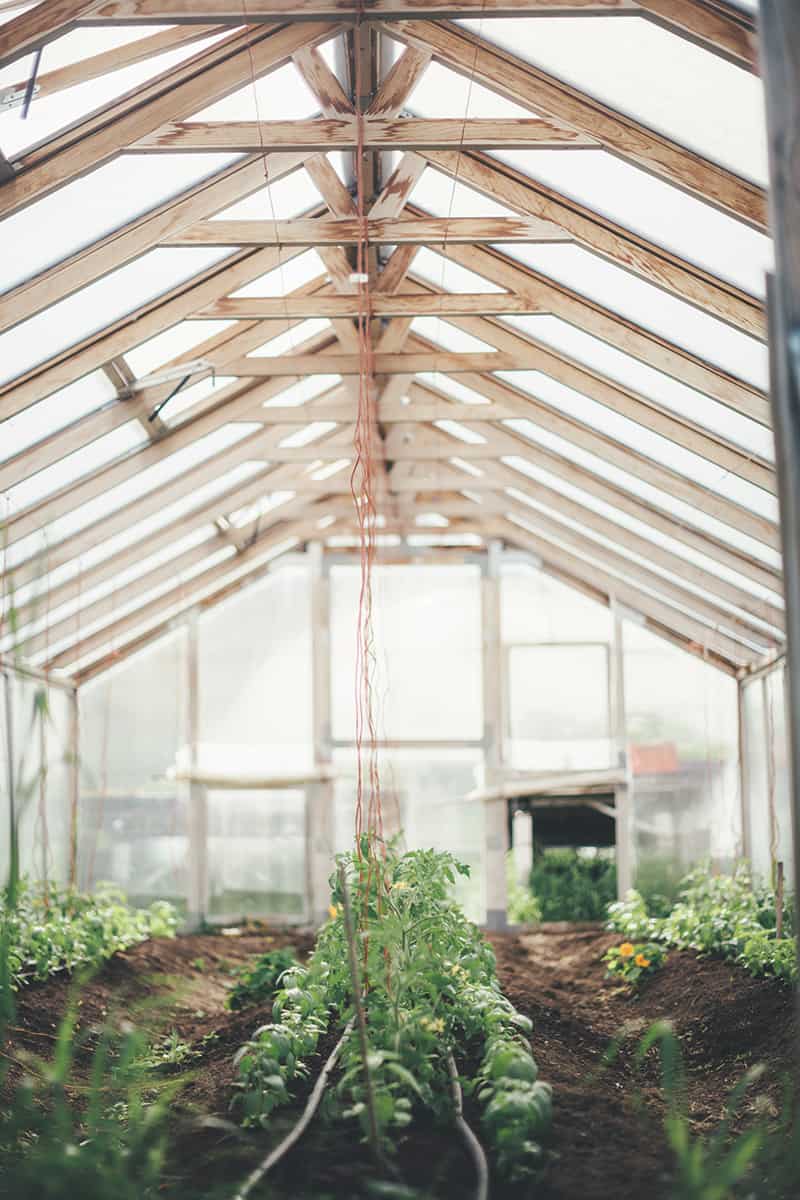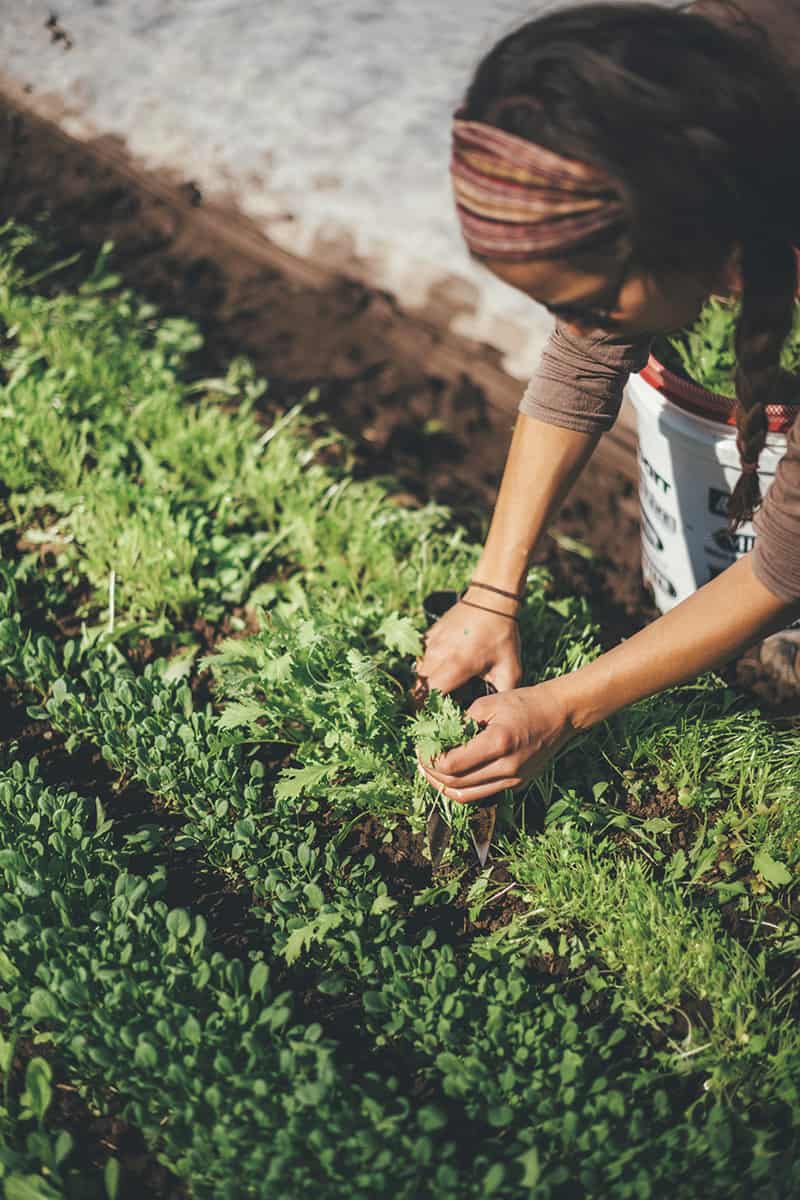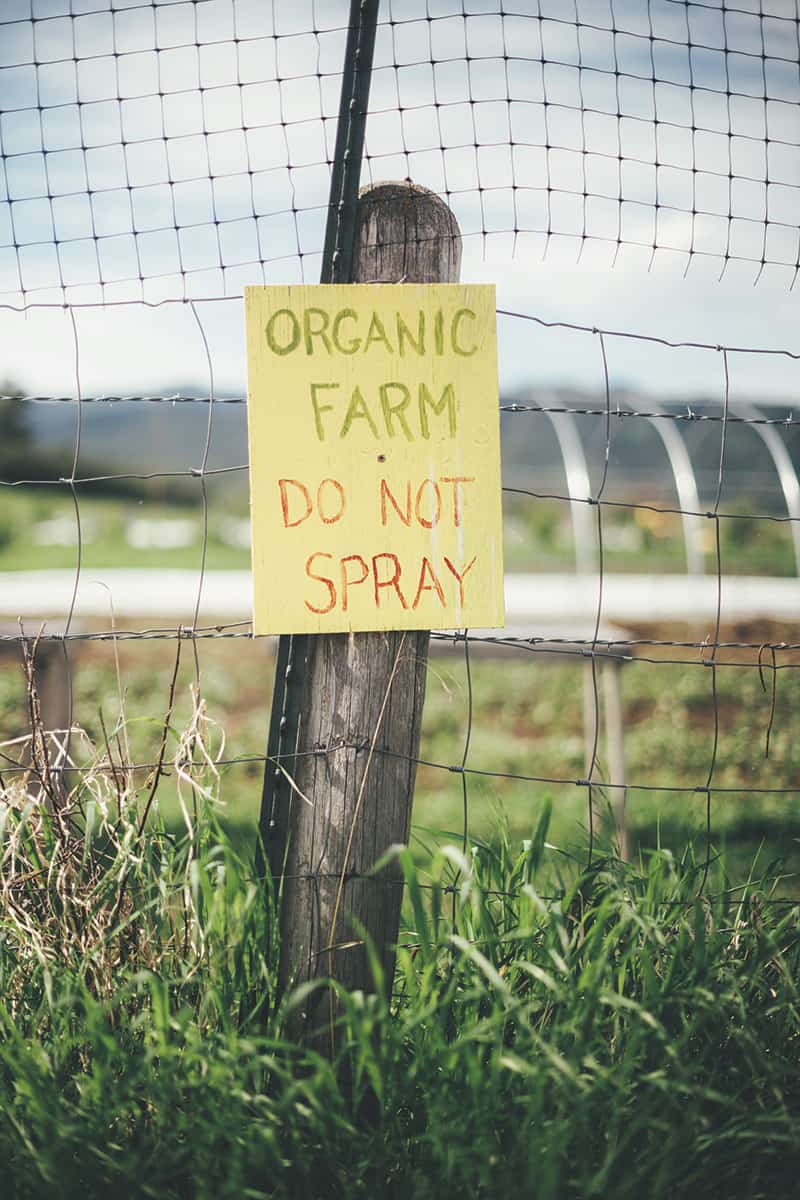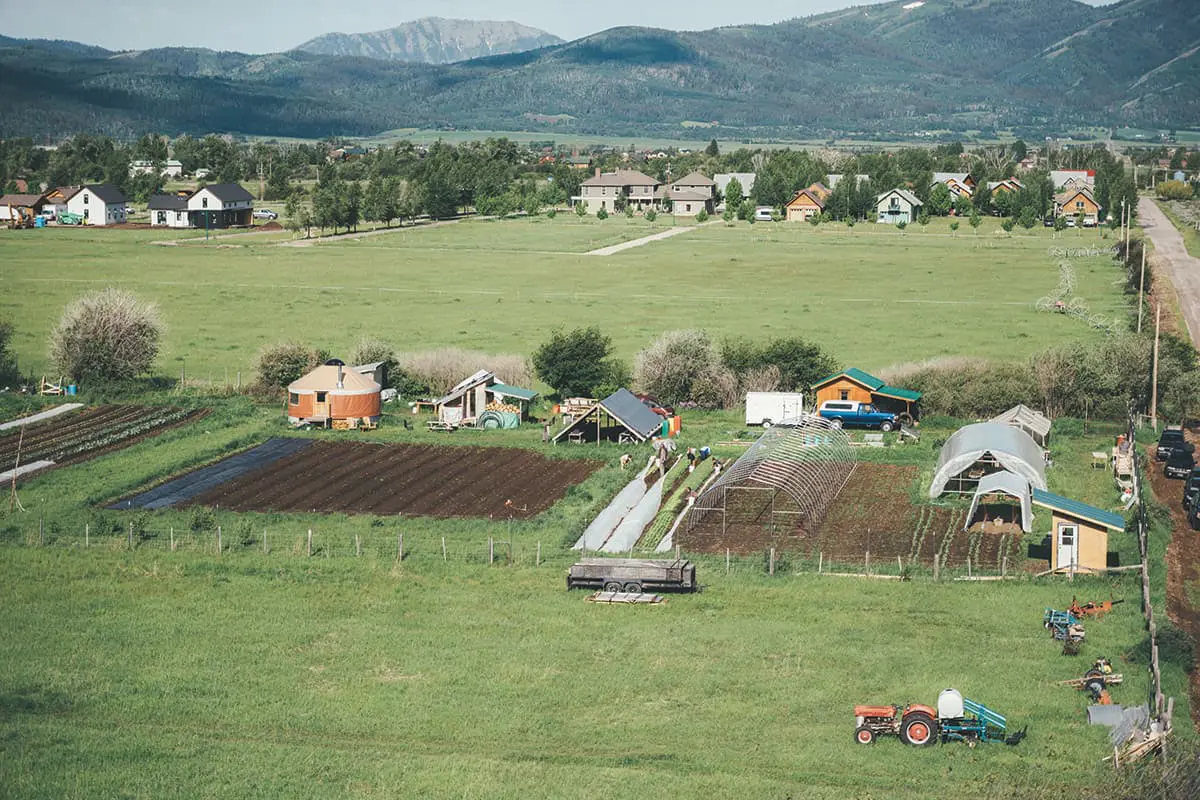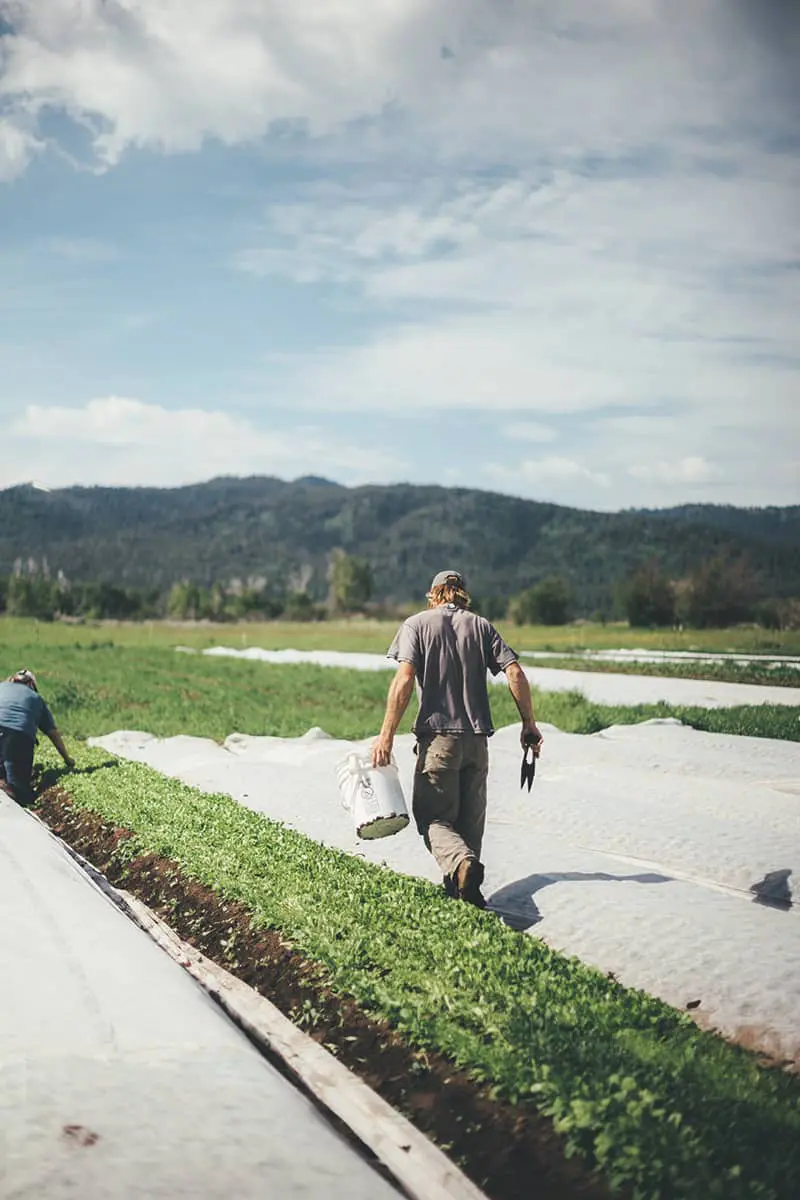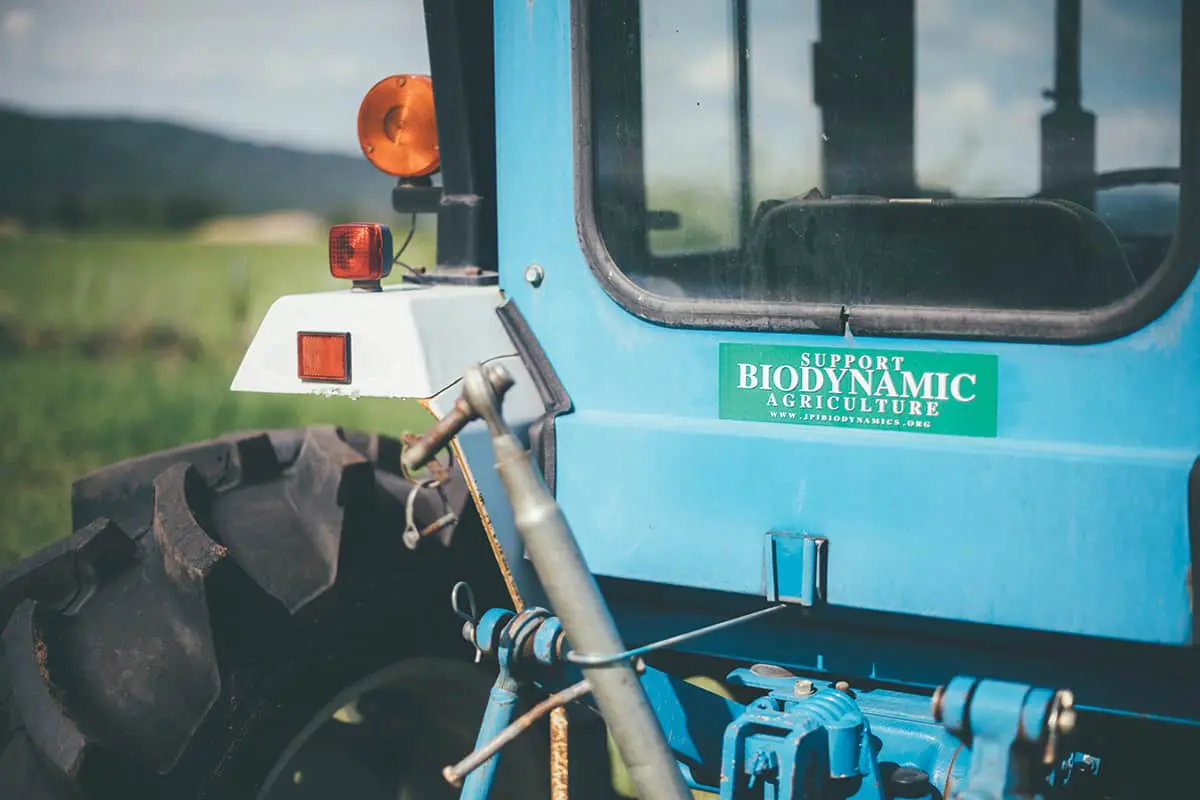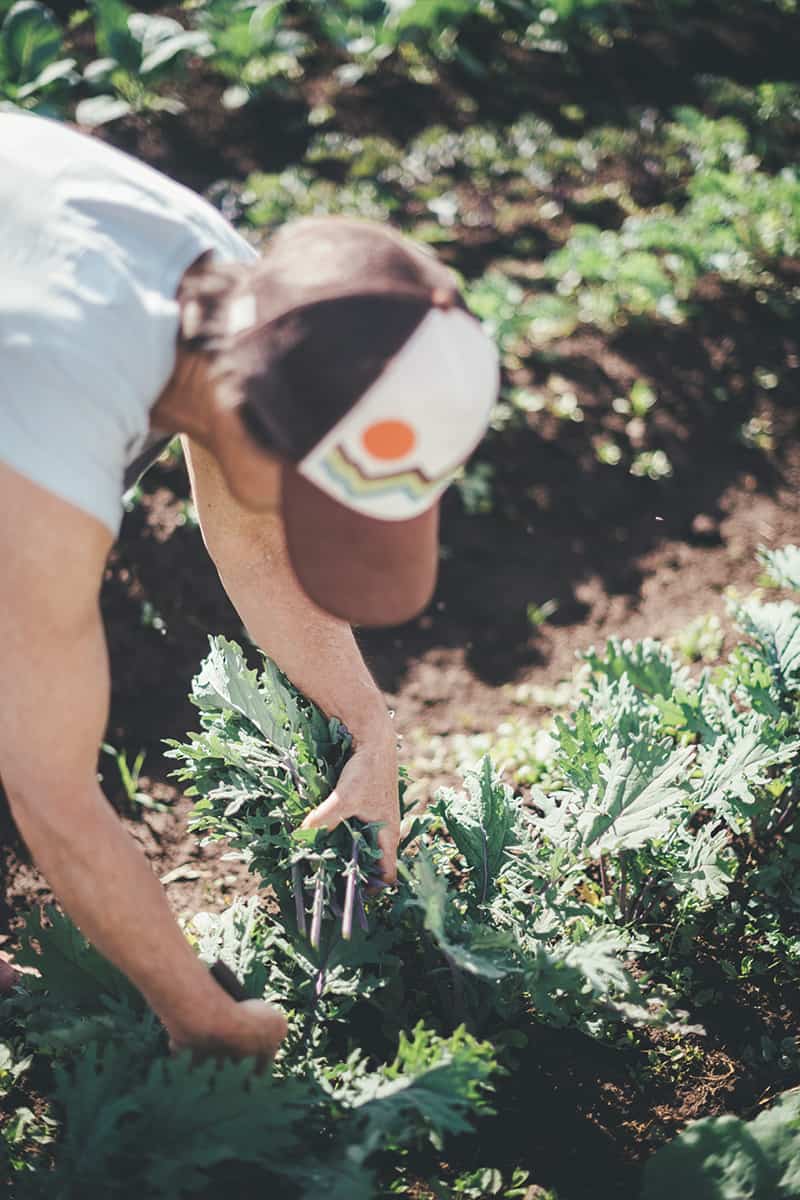By Tibby Plasse // Photography by Camrin Dengel
–
My first jam season at Paradise Springs Farm in Teton Valley piqued my curiosity about Biodynamic1 practices.
After a few weeks of picking raspberries and some long nights of canning, it was clear that different things happened on different days. And while my husband, Mike, would let me know what days would be best for picking berries and processing (based on the calendar, which read like a Star Trek prop), I only half paid attention, working around my own schedule instead.
But I learned something. A jar of jam processed on a “leaf day” was muted and pallid, whereas the “fruit day” batches were an iridescent fuchsia. I couldn’t believe the difference in taste and color, even though they all shared the same recipe. Years later, I know it’s not just the fruit. Calves show up during oppositions, weather shifts with planetary positions, and some days are just blank, do-nothing days. If I plant a root crop on a blank day, it may never come up … proving there’s a bigger picture to this type of farming.
Biodynamic agriculture—which treats soil fertility, plant growth, and livestock care as ecologically interrelated tasks, with the aid of an astrological sowing calendar—is a dense and intimidating field on which to gain footing. In 1924, philosopher and scientist Dr. Rudolf Steiner presented a system that bettered the outcome for a crop, or a herd, and also healed the soil in the process. When modern industrialization changed production practices, farmers sought Steiner’s opinion on how to salvage and, hopefully, restore the health of their crops. This resulted in a series of holistic management practices that incorporates energy from the cosmos (right down to burying cows’ horns as an antenna for this energy), to herbal ground preparations, to composting. He believed that “food should be grown to nourish the mind, body, and spirit, and not just be stomach filler.”
By 1928, the Demeter Association Inc. was formed in Europe to promote Biodynamic farming and a certification system was implemented. And in 1962, farmer Maria Thun devised a Biodynamic calendar, which was based on a lifetime of planting experiments that resulted in proven patterns.
Every farmer and anthroposophist struggles with Steiner’s dense texts. And while my farmers-market spiel doesn’t include everything, it surely gets the conversation going. I hit the following key points: Biodynamic farmers view their farms as self-contained, self-sustaining ecosystems responsible for creating and maintaining their health and vitality without any external or unnatural additions. This ebb and flow of a self-serving unit uses on-farm recycling to improve the character of the farm for animals and crops.
Farms minimize inputs for pest management. Water conservation is critical to a balanced operation. And specially prepared medicinal plants, minerals, and composted animal manures (known as “preps”) are applied to crops and lands as a means of improving vitality. Additionally, Biodynamic farms are required to maintain at least 10 percent of their total acreage as a “biodiversity set-aside,” which includes riparian zones, grasslands, and forests.
Accountability, traceability, and transparency are starting to become critical concerns for large agricultural productions, but they’ve always been badges of honor for Biodynamic farms. The Demeter Biodynamic certification includes fourteen different standards, incorporating those for wine, cheese, olive oil, dairy, and body care products. These standards guarantee an unbroken chain of accountability from farm to the finished product. It’s the ability to show anyone how your operation works, that its existence is based on the purest rules, and that it yields a well-taken-care-of plant and a nourishing ingredient that sets Biodynamic farming apart.
We’re fortunate enough to have two certified operations in the Tetons, serving both Jackson and Teton Valley: Cosmic Apple Gardens and Paradise Springs Farm. Additionally, Full Circle Farm practices under the tenets of holistic management, but is not yet certified.
Cosmic Apple’s founder, Jed Restuccia, was the first person to bring Biodynamic practices to the area. In 1994, he began experimenting with preps. “The difference is apparent—it’s the best food anyone’s ever had,” he enthuses. Cosmic Apple’s Community Supported Agriculture (CSA) program is a local tradition and a shared introduction to alternative agricultural practices. Farm owner Dale Sharkey explains: “We don’t try to force [Biodynamic farming] on people. The biggest thing we teach is that there are alternative methods to organic foods. The quality speaks for itself.”
Erika Eschholz, founder of Full Circle Education and cofounder of Full Circle Farm, first learned about Biodynamic farming from Restuccia in 1997, while working at Cosmic Apple. “This holistic approach to agriculture immediately resonated with me as a complement to my background in environmental and earth education,” she says. Eschholz and her husband, Ken Michael, work their land in a way that is accessible to learners of all ages by providing opportunities for the community to connect with the natural world on their farm.
At Paradise Springs Farm, my husband, Mike Reid, starts each day by checking Maria Thun’s calendar. First introduced to Biodynamic farming while studying botany and biology at Colorado State University, he now operates a 200-acre Biodynamic dairy farm at the base of the Big Hole Mountains. When asked what strikes him the most about Biodynamic practices, Mike responds, “Organic agriculture is fine, but it doesn’t present a practical system that encompasses all aspects. … Some of the things we do on Biodynamic farms sound far-out, but in reality, it’s the best and easiest path to take for the long term.”
There’s a growing market for Biodynamic foods. Demeter USA works with companies like Lundberg Family Farms, Amy’s Kitchen, Lakewood Juices, Zhena’s Teas, and others to match the consumer demand for products. As Elizabeth Candelario, codirector of Demeter USA, explains, “It’s absolutely unquestionable that the quality of product is there—terroir is not just for wine.”
A rice farmer from Lundberg Family Farms describes his first Biodynamic crop as more varietal-accurate than any other crop he had ever had. “It’s good for us. It’s good for the farm. It tastes good,” he says.
As impossible as it all sounds—incorporating the power of cosmic energy, the planets’ placement, the requirements to meet certification, and the sheer intestinal fortitude it takes to be a farmer—the end result is sparkling. Local clairvoyant Carol Mann sums it up: “Scientists and metaphysical experts acknowledge that everything is energy. Food with a higher frequency totally enlivens the body, mind, and spirit. Plants absorb energy, plants communicate, have memory, and respond to their environment.” This type of integrity creates a higher quality for existence. In other words, you are what you eat.
1 Biodynamics® is a registered trademark of the Biodynamic Association.

